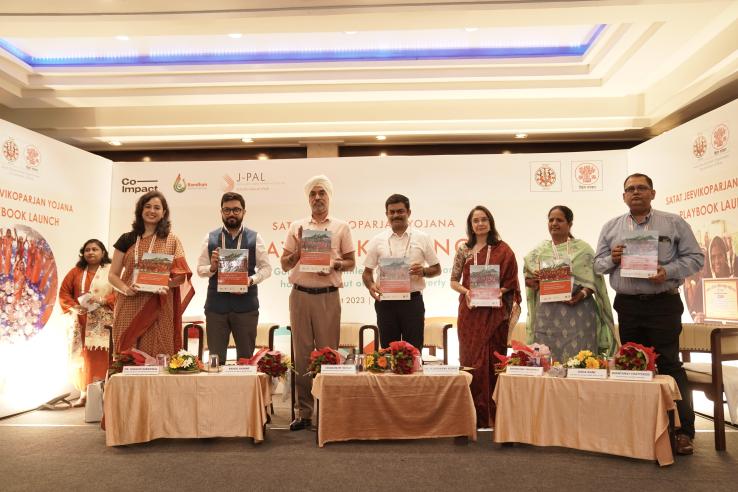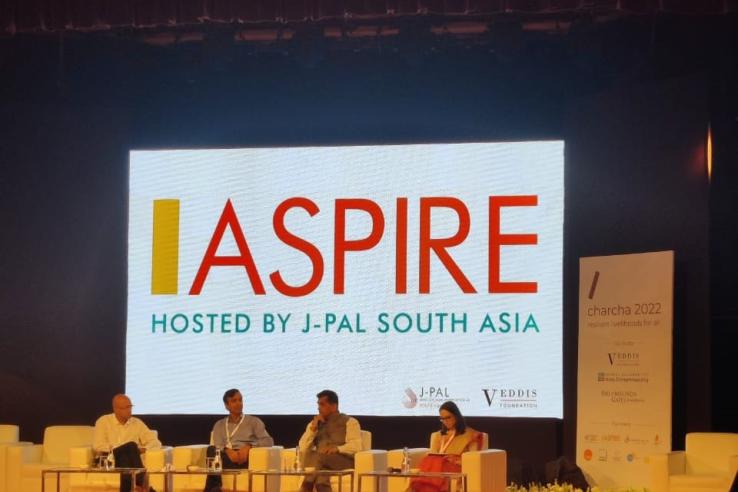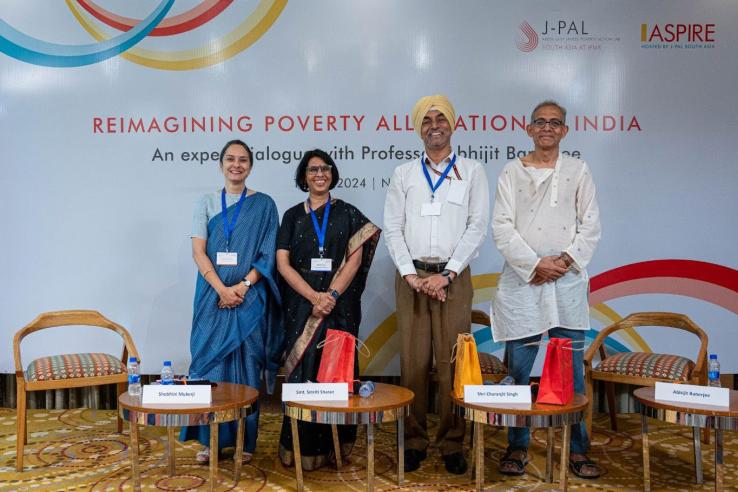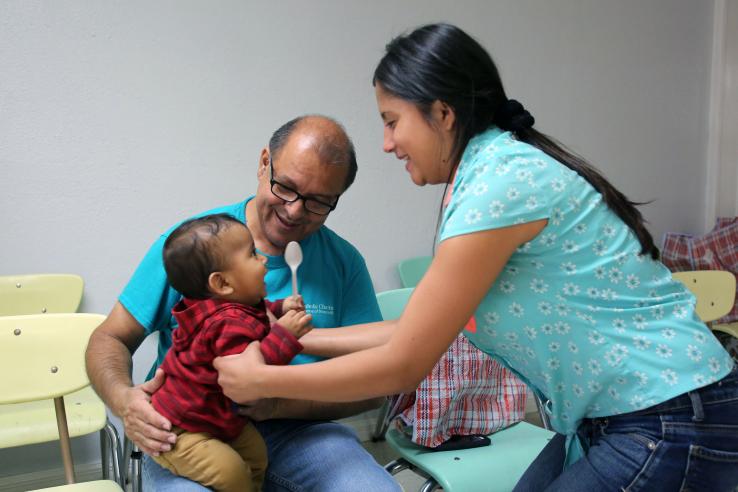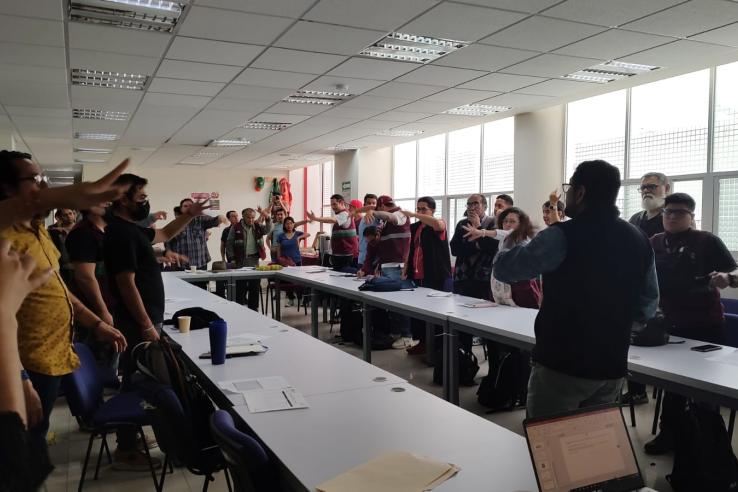Displaying 3466 - 3480 of 8489
Initiative
J-PAL North America's Labor team aims to build an evidence-based playbook of strategies to increase opportunities for workers, reduce the economic barriers and social challenges in labor markets, and ensure that all workers share in the prosperity generated by technological change and economic...
Blog
Tanvi Jaluka shares how she and her team at CARE conducted qualitative research as part of a baseline survey for Strive Women program in Peru, Pakistan, and Vietnam.
Research Paper
File: Research paper
Update
J-PAL Updates
This edition (in French) spotlights exchanges between government partners in Ghana and South Africa focused on establishing evidence labs, shares findings from new research on vocational education and shifting gender norms in Nigeria, and explores key takeaways from global evidence on sharing key...
Event
The Bihar Rural Livelihoods Promotion Society (JEEViKA), in collaboration with Bandhan-Konnagar and J-PAL South Asia, hosted the launch of a new playbook capturing five years of learnings from Satat Jeevikoparjan Yojana (SJY)—the world’s first government-led scale-up of the Graduation Approach. The...
Event
J-PAL South Asia participated in the Jameel C40 Urban Planning Climate Labs convening in Chennai, engaging with city leaders and practitioners on integrating climate action into India’s urban governance systems.
Event
At Charcha 2022, J-PAL South Asia’s ASPIRE team partnered with the Veddis Foundation to organize three high-impact sessions, marking ASPIRE’s first public introduction. Anchored in the event's themes of livelihoods and entrepreneurship, the sessions explored strategies to strengthen government...
Event
On July 11, 2024, J-PAL South Asia hosted an exclusive roundtable in New Delhi with Nobel Laureate and J-PAL Co-Founder Professor Abhijit Banerjee, bringing together senior leaders from government, philanthropy, and civil society to reimagine how India can tackle extreme poverty through scalable...
Event
J-PAL South Asia participated in the Vibrant Gujarat Summit 2024 to sign a Memorandum of Understanding under the SARWA initiative, in the presence of state government leadership. The booth showcased innovative research including the Emissions Trading Scheme (ETS), engaging over 70 attendees.
Update
J-PAL Updates
J-PAL North America's August newsletter features the Evidence Effect series from J-PAL Global, the launch of our new Initiative for Effective US Crime Policy, and a recent Research Staff Training.
Event
J-PAL North America at MIT, the Wilson Sheehan Lab for Economic Opportunities at the University of Notre Dame, and King County, Washington, invite you to a convening that brings together researchers, practitioners, and policymakers committed to advancing equitable community outcomes through the...
Resource
Basic page
PROSA- which stands for “Screening and Launching Program” in Spanish, is a joint project between J-PAL and Universidad del Valle de Guatemala. This project maps programs related to Early Childhood Development (ECD)—ranging from early stimulation to nutrition and health interventions—and evaluates...
Event
J-PAL LAC’s Community of Practice (CoP) for Gender Equality and Evidence Use goal is to bring together government officials, researchers, non-governmental organizations (NGOs) and civil society to tackle the structural barriers that prevent the empowerment of girls and women in LAC. The third...
Resource
Layout Page
The 2024-25 edition of “Improving Lives Through Evidence” reflects on how J-PAL’s approach to evidence and policy change has evolved over the years in response to new challenges, and sets ambitious goals to achieve a more just and sustainable world.
Evaluation
Researchers investigated how two different free tuition programs for low-income students affected application and enrollment to the University of Michigan. An unconditional offer substantially increased application and enrollment while a conditional offer had a much smaller effect on applications and zero effect on enrollment.



